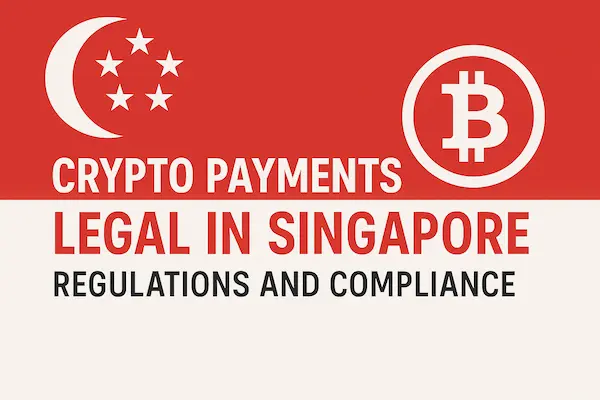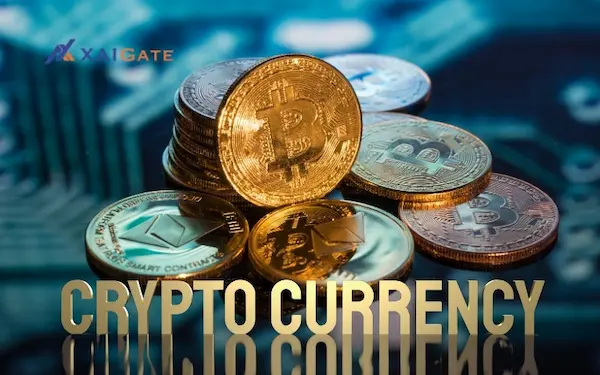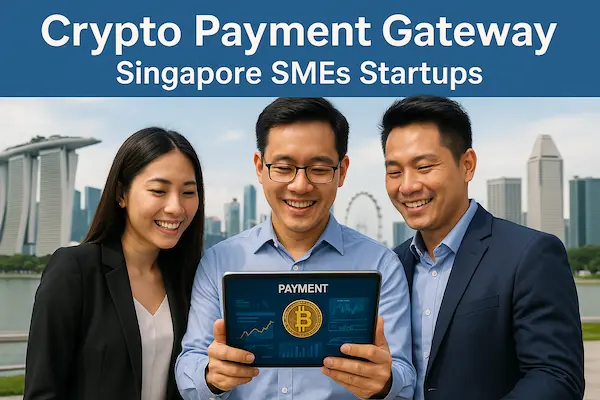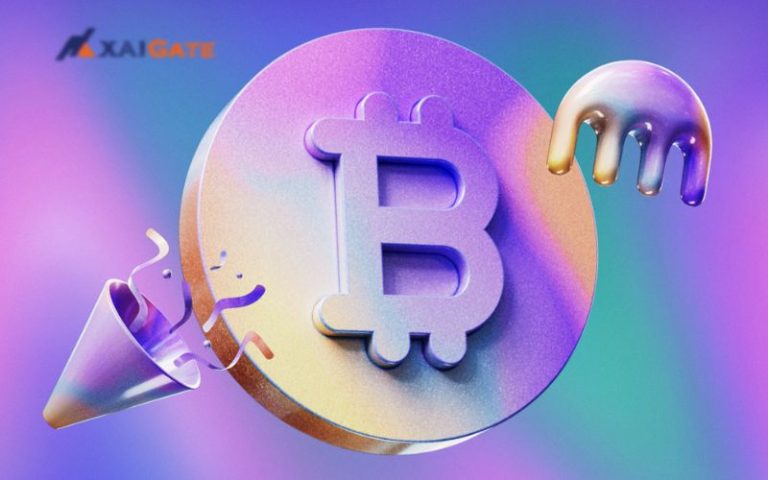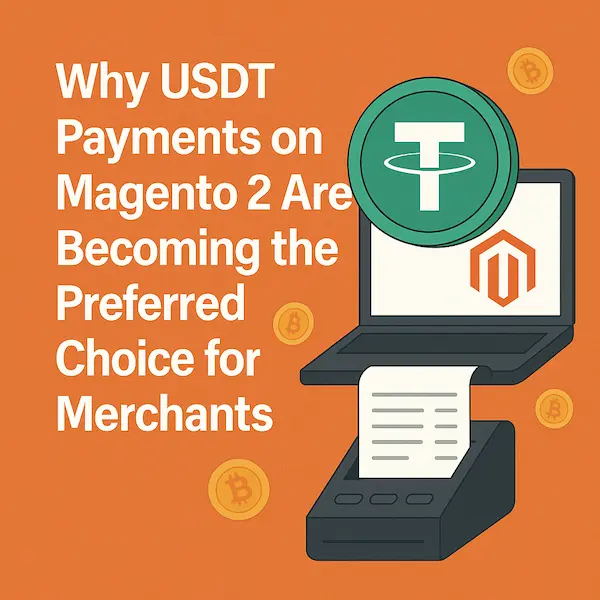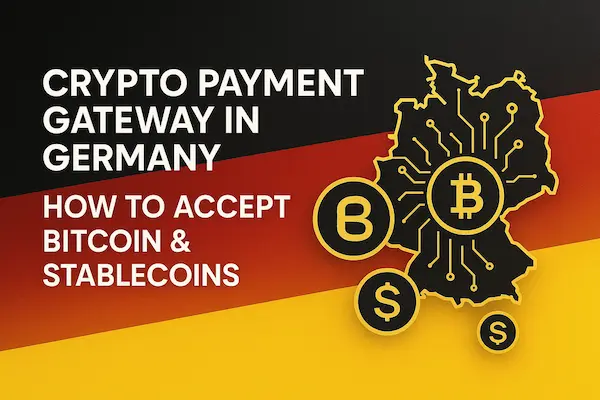In 2026, the regulatory landscape is no longer just about enabling crypto transactions; it’s about building a transparent ecosystem where technology, compliance, and trust coexist. For businesses operating in fintech, payment gateways, or blockchain-based services, understanding how crypto payments legal in Singapore actually function under current laws is essential.
This article explores Singapore’s full legal framework — from the Payment Services Act (PSA) to the Financial Services and Markets Act (FSMA) — and how organizations can remain compliant, future-proof, and ready for the next regulatory wave.
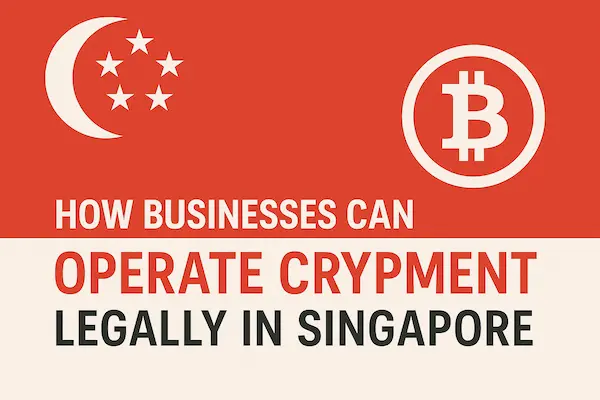
Contents
- 1 1. The Legal Landscape: Understanding Crypto Payments in Singapore
- 2 2. Why Singapore Took the Lead
- 3 3. The Regulatory Framework Behind Crypto Payments in Singapore
- 4 4. Compliance Requirements and Business Obligations in 2026
- 5 5. Outlook and Regulatory Trends for 2026
- 6 6. Real-World Case Studies – How Crypto Payments Legal in Singapore Work in Practice
- 7 FAQs: About crypto payment legal in Singapore in 2026
- 8 Conclusion – Legal Clarity Meets Innovation
1. The Legal Landscape: Understanding Crypto Payments in Singapore
Unlike some jurisdictions where crypto operates in a legal gray zone, Singapore has established a clear structure. Cryptocurrencies are not considered legal tender meaning you cannot demand payment in Bitcoin the way you can in Singapore Dollars but they are recognized as digital assets that can be used for payments under regulated conditions.
The cornerstone of this recognition lies in two major pieces of legislation:
- The Payment Services Act 2019 (PSA), which governs all payment-related activities, including digital tokens.
- The Financial Services and Markets Act 2022 (FSMA), which strengthens oversight and extends regulatory power to cross-border digital service providers.
MAS (Monetary Authority of Singapore), the nation’s financial regulator, treats crypto payments like any other financial service requiring registration, licensing, and full compliance with AML (Anti-Money Laundering) and CFT (Counter-Terrorism Financing) standards.
This structured approach ensures that crypto payments legal in Singapore are not just a theoretical concept, they represent a functioning ecosystem supported by clear rules, transparent licensing, and measurable accountability.
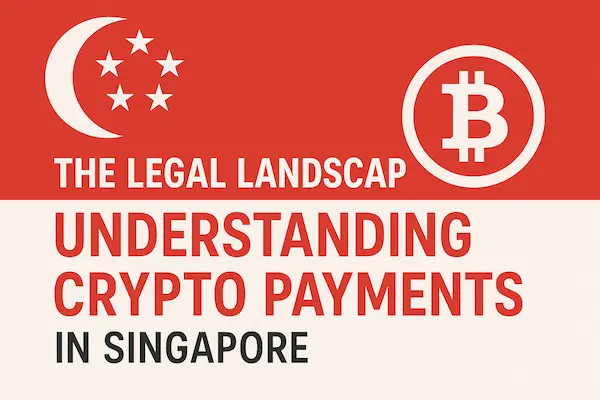
2. Why Singapore Took the Lead
Singapore’s legal clarity is not accidental. Since 2019, the government has viewed digital finance as a long-term growth pillar. The PSA introduced a Digital Payment Token (DPT) licensing regime that gave both local startups and global exchanges a legal way to operate.
Instead of banning or ignoring crypto, MAS chose a supervisory strategy observing, regulating, and gradually tightening the framework as risks became clearer. This pragmatic stance turned Singapore into a regional hub for compliant crypto payments, attracting exchanges, blockchain developers, and fintech innovators from across Asia.
By 2026, Singapore’s crypto regulatory maturity has outpaced most ASEAN neighbors. Its clear legal boundaries make it easier for companies to integrate crypto payment solutions safely into e-commerce, gaming, and remittance systems while maintaining investor and consumer confidence.
3. The Regulatory Framework Behind Crypto Payments in Singapore
To understand why crypto payments legal in Singapore are trusted by both investors and regulators, it’s important to look closely at the laws that shape this system. Singapore’s approach is not simply to allow crypto, it’s to supervise it through precise, enforceable legislation.
1. The Payment Services Act (PSA) 2019
The Payment Services Act is the backbone of Singapore’s digital payment ecosystem. Introduced in 2019, it created a single, unified framework for traditional and digital financial services — from remittances to crypto.
Under the PSA, any business offering Digital Payment Token (DPT) services must obtain a license from the Monetary Authority of Singapore (MAS). This includes crypto exchanges, wallet providers, and payment processors that handle or facilitate transactions in Bitcoin, Ethereum, stablecoins, or other digital assets.
What makes this law powerful is its flexibility. MAS can adjust the scope of regulated activities as technology evolves, allowing the legal environment to adapt without requiring a full legislative overhaul.
To maintain a license, operators must meet strict standards:
- Implement KYC (Know Your Customer) and AML (Anti-Money Laundering) procedures.
- Conduct risk assessments and transaction monitoring.
- Maintain cybersecurity infrastructure and insurance for digital asset custody.
The PSA ensures that crypto payments legal in Singapore are supported by compliance systems comparable to those of banks.
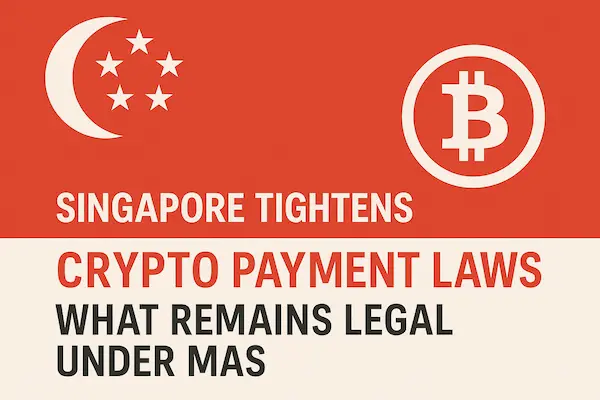
2. Financial Services and Markets Act (FSMA) 2022 – Part 9 Expansion
By 2026, Singapore realized that some crypto firms were trying to avoid local regulation by serving only overseas clients. The FSMA 2022 closed that loophole. Its Part 9 provisions, effective June 30 2026, require even overseas-facing crypto companies operating from Singapore to obtain a MAS license or shut down their operations.
This update shows how serious Singapore is about preventing regulatory arbitrage — ensuring all digital token service providers remain accountable under local law.
The FSMA complements the PSA: together they form a dual-layer legal structure where domestic and international crypto activities are both covered.
3. The FATF Travel Rule and Cross-Border Transparency
Another critical component of Singapore’s crypto regulation is the FATF Travel Rule, introduced to enhance transparency in international crypto transfers. Under MAS enforcement, every crypto transaction above SGD 1,500 must include information about both the sender and the recipient — similar to how banks handle wire transfers.
This requirement doesn’t just reduce fraud and money laundering; it also gives legitimacy to the entire crypto payment ecosystem.
4. Stablecoin Regulation: The MAS 2023 Framework
Stablecoins became a hot topic after several global collapses in 2022. To restore trust, the Monetary Authority of Singapore introduced a dedicated Stablecoin Regulatory Framework in 2023.
The new rule requires stablecoin issuers to:
- Hold full-reserve assets in the currency they are pegged to (e.g., USD, SGD).
- Conduct monthly audits and publish independent attestations.
- Ensure that users can redeem their tokens at face value within five business days.
This framework turned Singapore into one of the few countries where stablecoin payments are legally recognized under a structured compliance model.
For businesses, it means that accepting or settling payments in USDT, USDC, or similar assets is fully legal, provided it aligns with MAS regulations.
5. Consumer Protection and Marketing Rules
Singapore’s regulations go beyond financial compliance, they protect the public from misinformation.
Since 2024, MAS has banned advertising that downplays crypto risks or promotes unrealistic returns.
Crypto companies must present clear disclaimers, avoid aggressive marketing in public spaces, and ensure all promotional content reflects the true risk level of digital assets.
This makes Singapore’s legal environment one of the safest in Asia for investors, traders, and fintech businesses.
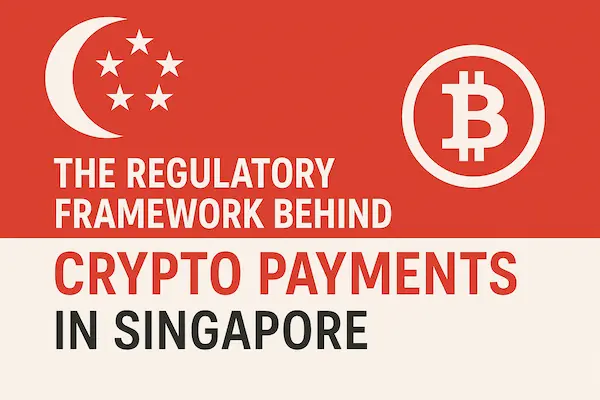
4. Compliance Requirements and Business Obligations in 2026
The legality of crypto payments in Singapore is not a free pass — it’s a responsibility.
Every company that wishes to operate in the sector must follow a detailed compliance roadmap defined by MAS. These obligations form the bridge between legal permission and regulatory accountability.
Below are the key requirements every crypto payment provider must understand before entering the Singapore market in 2026.
1. Licensing Under the Payment Services Act (PSA)
Every crypto business offering exchange, transfer, or custody services must hold a Digital Payment Token (DPT) license.
There are two levels:
- Standard Payment Institution (SPI) — for startups or smaller operators.
- Major Payment Institution (MPI) — for firms handling large transaction volumes.
Obtaining a DPT license means proving not only financial soundness but also technical resilience and internal control maturity. MAS evaluates how well a company secures client assets, prevents misuse of tokens, and implements AML systems.
“Licensing is not just paperwork,” as one MAS official once said. “It’s a demonstration of your integrity in a trust-based ecosystem.”
This principle explains why crypto payments legal in Singapore are treated with the same seriousness as traditional finance.
2. KYC and Customer Due Diligence
No crypto payment is anonymous in Singapore’s regulated space. Under MAS Notice PS-N02, businesses must identify and verify every customer’s identity before allowing transactions.
This includes:
- Collecting government-issued ID or corporate registration data.
- Verifying beneficial owners for corporate accounts.
- Assessing transaction purpose and origin of funds.
- Performing ongoing due diligence for higher-risk clients.
Such measures make Singapore’s crypto landscape cleaner and more transparent than many global peers. For end users, it means transactions are safer; for companies, it means reduced exposure to compliance risks.
3. AML / CFT Monitoring and Reporting
Money laundering and terrorism financing remain key global concerns. To maintain the credibility of crypto payments legal in Singapore, MAS enforces strong AML/CFT monitoring rules.
Businesses must:
- Track suspicious transaction patterns in real time.
- Report red-flag activities immediately to the authorities.
- Keep complete transaction records for at least five years.
Failure to meet these obligations can result in license suspension or legal prosecution. This rigorous system ensures crypto is not exploited for illicit use while keeping legitimate innovation alive.
4. Travel Rule Compliance
For any crypto transfer above SGD 1,500, the FATF Travel Rule applies. Service providers must transmit identifying details of both sender and receiver — name, wallet address, and transaction purpose. Even smaller transactions require at least minimal customer data collection.
This rule aligns Singapore’s framework with global standards, ensuring international compatibility for crypto payment gateways operating across jurisdictions.
5. Cybersecurity and Operational Resilience
Crypto firms in Singapore must demonstrate robust security frameworks comparable to banks.
MAS expects companies to:
- Encrypt user data and private keys.
- Maintain backup servers in separate locations.
- Conduct penetration tests at least once a year.
- Implement disaster-recovery and incident-response plans.
Such requirements are not optional — they’re the reason Singapore’s crypto industry experiences fewer breaches and enjoys a reputation for reliability across Asia.
6. Marketing, Disclosure, and Consumer Protection
Since 2024, MAS has strictly regulated how crypto companies communicate with the public. Advertisements cannot downplay risks or promise guaranteed returns. All promotions must include disclaimers and link to MAS’s consumer advisory about the volatility of digital assets.
For example, a crypto payment gateway cannot run billboard ads claiming “Safe, guaranteed profits.” Instead, it must communicate the realistic use-case: “Licensed payment processing for digital tokens under MAS regulations.”
This balance between innovation and honesty is why Singapore’s crypto payment framework consistently earns positive coverage from global media and Google News-approved publications.
7. Ongoing Audit and Reporting Obligations
MAS requires annual independent audits covering:
- Financial records,
- Compliance policies, and
- Cybersecurity controls.
Quarterly updates may also be requested depending on business scale. These measures create a transparent reporting chain between operators and the regulator — one that reinforces public trust and improves long-term sustainability.
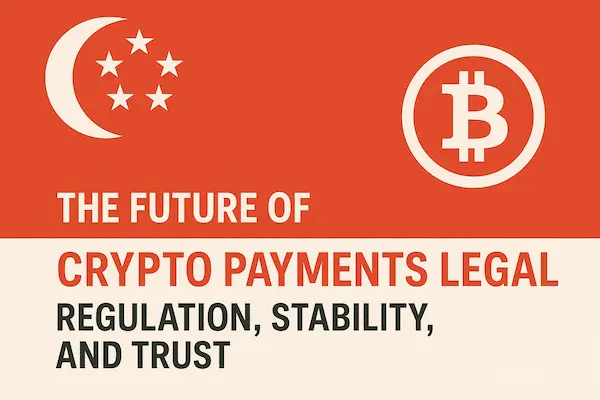
5. Outlook and Regulatory Trends for 2026
By 2026, crypto payments legal in Singapore represent more than regulatory permission — they mark a maturing financial ecosystem built on trust, compliance, and innovation.
1. MAS Oversight Strengthens
The Monetary Authority of Singapore (MAS) is tightening supervision.
Digital Payment Token (DPT) licensees now face deeper tech-risk audits and stricter data-protection reviews. MAS is also using analytics to flag suspicious crypto flows before risks materialize — a shift toward predictive compliance. This precision-driven enforcement keeps Singapore’s crypto sector transparent, credible, and globally respected.
2. Cross-Border Regulatory Alignment
Singapore’s framework now mirrors international standards like EU MiCA and Japan’s FSA guidelines.
This harmonization enables licensed firms to operate across markets with fewer barriers. It also reinforces Singapore’s image as Asia’s benchmark for compliant crypto payments, attracting global exchanges and institutional investors.
3. Stablecoins and Tokenized Payments
Under MAS’s Stablecoin Framework (2023), issuers must hold 1:1 fiat reserves, publish monthly attestations, and guarantee redemption. As a result, stablecoins like USDT and SGD-backed tokens are accepted for regulated payments. This integration links blockchain efficiency with central-bank-grade reliability — turning crypto into a trusted payment channel, not speculation.
4. AI-Enhanced Compliance
In 2026, AI is transforming regulatory operations. Crypto firms use machine learning to automate KYC, detect anomalies, and predict risk scores. For MAS, these tools improve real-time oversight and reduce compliance lag.
5. Consumer Protection Expands
MAS continues to educate the public through its Financial Institutions Directory. New rules address wallet recovery, dispute resolution, and fraud prevention, giving users safer participation.
6. Real-World Case Studies – How Crypto Payments Legal in Singapore Work in Practice
In the real world, Singapore’s legal framework for crypto payments has moved far beyond theory. Businesses that comply with the Payment Services Act and FSMA Part 9 are already processing millions of dollars in transactions each month, while unlicensed firms have gradually disappeared from the market. These case studies show how the country’s clarity in law translates into tangible business success.
Case Study 1: Licensed Gateway Expanding Across Asia
In 2026, a MAS-approved fintech company obtained its Digital Payment Token (DPT) license and launched a cross-border crypto payment gateway. By adhering to PSA 2019 standards and conducting full KYC checks, it processed stablecoin payments for online retailers in Malaysia and Indonesia without any regulatory friction. This proved that crypto payments legal in Singapore can scale safely across borders when compliance is designed from the start.
Case Study 2: Stablecoin Integration for Retail Payments
A Singapore supermarket chain partnered with a regulated issuer to pilot SGD-backed stablecoin transactions. The issuer complied fully with MAS’s Stablecoin Framework 2023, maintaining 1:1 reserves and publishing monthly audits. Within a year, one-third of the chain’s digital payments came from stablecoin users, a strong signal that regulated crypto assets can serve daily retail demand in a compliant environment.
Case Study 3: Cross-Border Compliance Challenge
A global exchange headquartered in Singapore faced a deadline under FSMA Part 9 in mid-2026.
Instead of exiting the market, the company upgraded its AML systems, applied for the new license, and received MAS approval. The move allowed it to continue serving overseas clients legally, turning what could have been a disruption into a strategic advantage and reinforcing confidence in Singapore’s compliance-first model.
Case Study 4: AI-Driven AML Solutions for Crypto Processors
A blockchain-analytics startup built an AI tool to detect suspicious activity for DPT licensees.
After integration with several payment processors, the system cut manual review time by 40 percent and improved audit results. This case illustrates how AI now plays a vital role in keeping crypto payments legal in Singapore — automating compliance while maintaining transparency.
Case Study 5: Investor Confidence Through Transparency
A venture capital fund specializing in fintech only invested in MAS-licensed operators.
Its 2026 report revealed that licensed crypto businesses delivered 2.5 times higher returns than unregulated peers. This shows that regulation doesn’t slow growth — it attracts capital and trust, key ingredients for long-term sustainability in the crypto economy.
FAQs: About crypto payment legal in Singapore in 2026
1. Is crypto payment legal in Singapore in 2026?
Yes. Crypto payments are legal in Singapore under the Payment Services Act and FSMA 2022, regulated by the Monetary Authority of Singapore (MAS).
2. Which law governs crypto payments in Singapore?
The Payment Services Act 2019 (PSA) and Financial Services and Markets Act 2022 (FSMA) provide the legal foundation for all crypto-related transactions.
3. What license is required for crypto payment providers?
Businesses must obtain a Digital Payment Token (DPT) license from MAS to operate legally in Singapore.
4. Are overseas crypto companies affected by Singapore’s law?
Yes. From June 30, 2026, foreign digital token service providers serving clients from Singapore must hold a Part 9 license under FSMA.
5. What is the FATF Travel Rule requirement?
All crypto transfers above SGD 1,500 must include sender and receiver identification details for AML compliance.
6. Are stablecoins legal in Singapore?
Yes. Stablecoins are regulated under the MAS Stablecoin Framework (2023), requiring full-reserve backing and monthly audits.
7. What penalties apply for non-compliance?
Unlicensed or non-compliant operators risk license suspension, fines, or prohibition from conducting crypto-related activities.
8. Why is Singapore a global model for crypto regulation?
Because it combines legal clarity, strict compliance, and innovation, making crypto payments legal in Singapore both safe and scalable for the future.
Conclusion – Legal Clarity Meets Innovation
By 2026, crypto payments legal in Singapore no longer raise questions — they set global standards.
Singapore has proven that digital finance can thrive without sacrificing compliance. Through the Payment Services Act, FSMA Part 9, and MAS’s stablecoin framework, the nation has built one of the world’s most balanced crypto ecosystems: innovative, transparent, and trustworthy.
What makes Singapore exceptional isn’t just its laws, but its mindset — regulation as a catalyst for responsible growth. Businesses that operate within this framework aren’t just following rules; they are building long-term credibility in one of Asia’s most advanced financial hubs.
For investors, consumers, and fintech founders, Singapore offers a rare balance between legal certainty and technological freedom — a model that many nations are beginning to emulate.
Quick Summary Table
| Key Aspect | Summary (2026 Update) | Legal Reference |
|---|---|---|
| Legality | Yes – crypto payments are legal but regulated | PSA 2019 & FSMA 2022 |
| Regulator | Monetary Authority of Singapore (MAS) | – |
| License Type | Digital Payment Token (DPT) license | PSA s. 6–8 |
| Overseas Firms | Must obtain Part 9 license by June 30 2026 | FSMA Part 9 |
| Stablecoin Rule | Full-reserve, monthly audit required | MAS Framework 2023 |
| Travel Rule Threshold | Transfers > SGD 1,500 need full KYC info | FATF Compliance |
| Marketing Rules | No misleading ads; risk disclaimer mandatory | MAS Guidelines 2024 |
| Future Focus | AI-driven compliance, cross-border harmonization | 2026 Outlook |
Stay Compliant, Stay Ahead
If you’re building a crypto or fintech business in Singapore, 2026 is your moment to lead — not just to operate. Compliance is no longer a barrier; it’s your strongest competitive edge.
Partner with XaiGate — Singapore’s trusted crypto payment gateway.
Enable stablecoin (USDT, USDC, SGD-backed) transactions fully compliant with MAS rules.
Empower your business with secure, licensed, and legally recognized crypto payments in Singapore.

